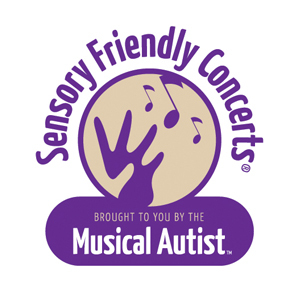When you buy a ticket for a fine arts concert venue, like a symphony hall or a formal jazz club, what are the expectations? What about the person sitting behind you who is talking, constantly making noise or moving around? Are you the type of person who says something? Or maybe just give them a dirty look and hope they get the hint? What if the person has a disability that keeps them from being able to sit still through the performance? As we've seen in a recent, well-shared post from actor, Kelvin Moon Loh, this has been the talk of Broadway lately.
It can cost a lot of money to go hear a performance in a jazz club or concert hall. I've happily paid over $75 for one ticket in DC to go see John Scofield at Blues Alley, or the National Symphony Orchestra at the Kennedy Center. Experiencing great live music is a gift that is worth that high price for a ticket. As a musician and Board Certified Music Therapist, I can think of certain concerts I've been to that have literally changed. My. Life. Forever. I'm not exaggerating.
But maybe I'm just lucky to have had these experiences, simply because I possess the "social skills" and sensory mechanisms that enable me to sit perfectly still, anywhere from one to three hours. What if I didn't have this ability to sit very still and very quiet? I wouldn't have those experiences that have shaped me to be the musician I am today.
Here is where we find a problem. Typical public concert venues are inaccessible to those who are unable to sit still and be quiet. Experiencing live music in the fine arts is totally elusive to the growing number of people in our society on the autism spectrum. This is not okay. This is why I got started with the concept of Sensory Friendly Concerts, and why it's been developing into a model of "community music therapy." As Kelvin so passionately shared last week, our entire society needs help, not just the child on the spectrum who is having a meltdown in the aisle, and the mother who is doing everything she can to help him. This is why we work so hard to promote the Neurodiversity Movement at Sensory Friendly Concerts. We encourage all public music venues to follow The Musical Autist's lead and replicate our ideas.
Just as we've seen in the past few decades of disability rights for those who are deaf or those who use wheelchairs, I believe the time is coming when our society will be as equally accommodating to people on the autism spectrum. That noise-reduction headphones would be as common as closed captioning. Or that sensory quiet rooms, for a person who needs a moment to regroup or take a "stim-break" would be as common as a wheelchair-accessible building. But the best accommodation of all that society can give? This can be described in one word, acceptance.
As so many are starting to realize, autism is not a disease which needs to be "cured" or "extinguished." As Steve Silberman so accurately describes in his new book, Neurotribes, autism can certainly be a disability, and should be respected and accommodated as such. It's time to create social environments where autistic behaviors are accepted. Autism "awareness" is simply not enough, it's time to progress from awareness to acceptance and respect. We must presume competence in people on the spectrum, that even if they are not able to "sit still and be quiet" it doesn't mean they enjoy the music any less. Or, think about those on the spectrum who are nonverbal. Perhaps they enjoy and understand the universal language of music even more than the average neurotypical person? Food for thought.
How do we encourage our society to be more accepting of autistic behaviors? One way is by creating equal access to the fine arts in all public venues. The motto of Sensory Friendly Concerts pretty much sums it up, "hand flapping allowed!"
